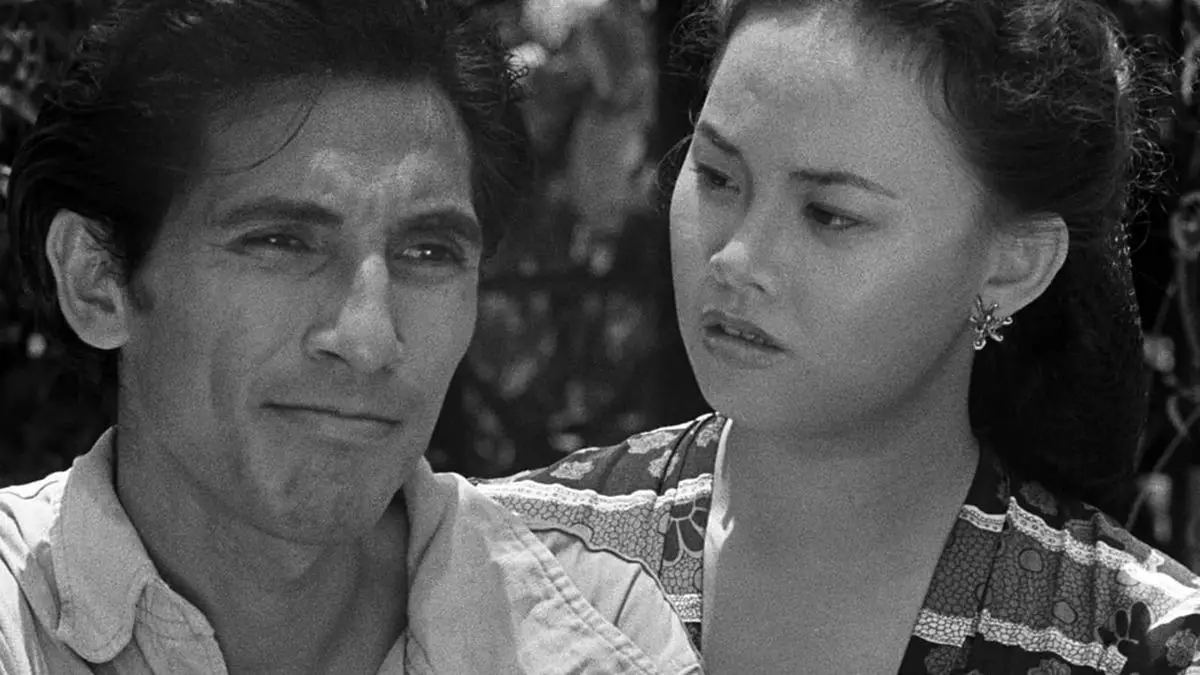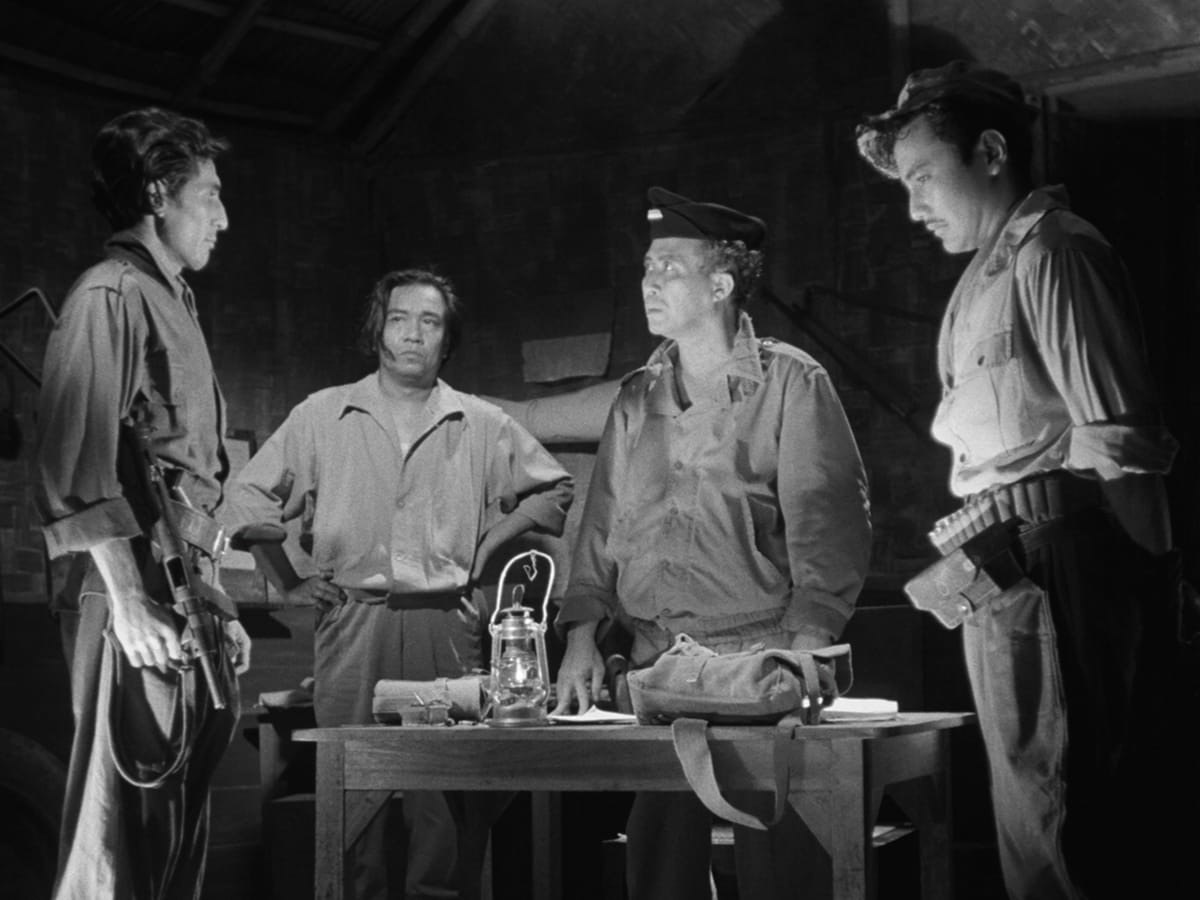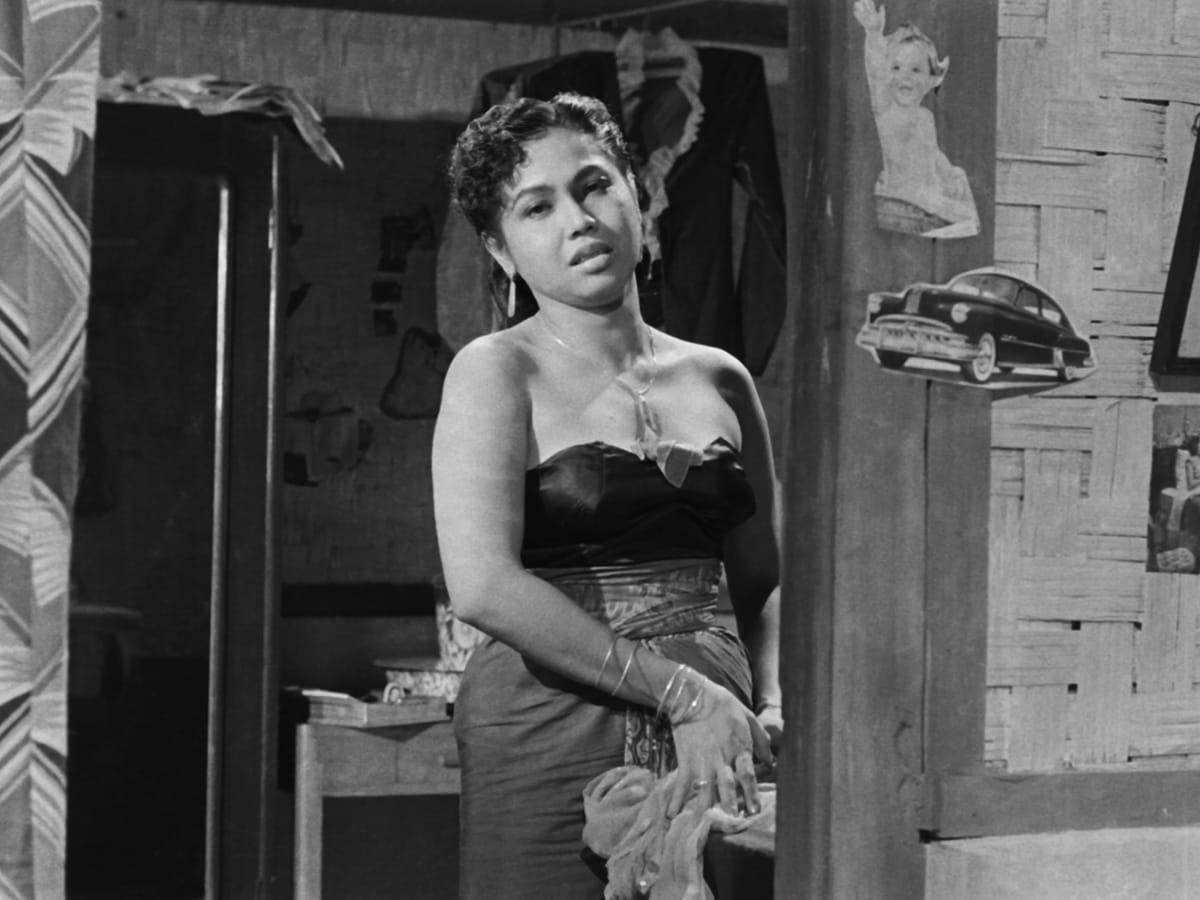One of the most difficult things about a revolution is figuring out what to do after winning it. What do you do once the fighting has stopped?
Many films wrestle with this notion, but few approach it with more complex pragmatism and intimate knowledge than Usmar Ismail’s After the Curfew (Lewat Djam Malam). The 1954 Indonesian film is among the first to be seen outside the country’s borders. Cribbing from the classic Hollywood studio system and the Italian Neo-Realism movement, Usmar populated his films with non-actors and actors.

Trained by the occupying Japanese government to make propaganda films, Ismail became one of Indonesia’s most important filmmakers. A country that only started making films in the 1920s and even then barred Indigenous peoples from making them while also segregating the theaters themselves, dividing them into Class 2 and Class 1 venues. Ismail shares much in common with Senegal’s Ousmane Semebne in that he was highly critical of both the colonial and post-colonial powers.
To quote “The Who,” Ismail, a former freedom fighter, was keenly aware that “The new boss was the same as the old boss,” and he was determined not to be fooled again. After the Curfew looks at the story of a young soldier, Iskander (A.N. Alcaff), who just returned home from the war. After years spent in the mountains in a bloody fight for independence, he returns home to an Indonesia he does not recognize.
The military of Bandung, West Java, establishes a curfew to help curtail civil unrest. Iskander only finds out about the curfew when he reads about it. Seconds later, he is chased by the police for violating a curfew he never knew existed. He runs because when the cops shout at you in the night to stop, only a fool listens.
Ismail models After a Curfew on the old Hollywood film noirs of the 40s. The urban landscapes contrast the lush countryside as Iskander struggles to find his place in a country he’s fought for but no longer understands. The dark shadows remind Iskander of the people he’s murdered. Their death haunts them because he has begun to wonder if they were innocent.
By our modern sensibilities, what Iskander is suffering from is a form of PTSD. Possibly inspired by William Wyler’s 1946 The Best Years of Our Lives, Usmarl attempted to show how they have been forever changed by sending these men off to die and how society seems unable or unwilling to help them.
But like Sembene, Ismail isn’t afraid to aim the military powers in charge and the rampant corruption that seems to have existed during and after independence. One of the most striking aspects of After the Curfew is how Ismail almost presciently foretells Suharto’s military dictatorship. Looking at the seeds already taking root, Ismail can see the weed of fascism growing again.
Iskander’s former commander, Gunawan (R.D. Ismail), now a wealthy businessman, offers him a job as a hired thug. He wants Iskander to threaten rival businesses and scare them into forgiving Gunawan’s debts. Iskander is enraged and disillusioned.
Ismail, shrugging off simplicity, has Gunawan’s fiery rhetoric have a kernel of truth. There is a righteousness to it, but it’s borne from a hostility leftover from the war. They may not be in the mountains anymore, but Gunawan is as bloodthirsty and ruthless in his nice suit and tiny office.

After the Curfew is hard to watch at times because of how expressive and tormented Alcaff’s face is. He is narrow-faced and handsome with a mug perfect for Ismail and Max Tera’s camera. It’s as if his face is a window into his tormented soul as he wrestles with his past and uncertain future.
Asrul Sani’s script gives Iskander a glimpse at two possible futures. One is in the form of one of his former superiors, Gafar (Awaludin), a contractor with a thriving business. Gafar builds schools, hospitals, and other needed buildings for the growing city. The other is Puja (Bambang Hermanto), a fellow soldier, now a hustler and pimp. The two men represent paths for Iskander, and through his own stubbornness and personal demons, he will find himself too far down one to realize his tragic mistake.
Ismail and Sani cleverly have Iskander’s fiance, Norma (Netty Herawaty), belong to the prosperous bourgeois class that is beginning to grow. Unlike most, Iskander comes home to a lovely house and a family willing to give him a government job. The government job doesn’t pan out but is a chance denied to someone like Puja.
Like everyone else, Norma and her family goad Iskander to jump in with both feet and be productive members of society. The urgency thrust upon Iskander only exacerbates his fragile psychological state. Everyone is so busy worrying about getting Isknder that they don’t notice the apparent mental anguish. On his first day in government, he fights with his boss and co-workers after they set him up to fail and then ridicule him.
After the Curfew, among other things, shows what happens when you train someone to treat every problem as an opportunity for violence. The boss and the co-worker were wrong to treat Iskander like they did, but Iskander only knows how to be a soldier, so he responds like one through action and violence. He’s so used to being a gun that he can’t imagine being a human.
Something that gnaws at him, as memories of a family he executed on Gunawan’s orders. “I once killed people on your orders…and to this day, I still don’t know if they were guilty or not.” Upon finding out from Gafar that the family was innocent and that Gunawan used their money to start his business, Iskander wonders why no one did or said anything. Gafar shrugs that all that takes time, money, and effort is not worth going through the proper channels.
Again, Ismail and Sani show how corruption can lead to a dictatorship. If ensuring justice is done becomes viewed as a burdensome chore with no result, what hope is there for justice to flower? The powerful only become emboldened to acquire more power by any means necessary.
While at Puja’s, Iskander meets Laila (Dhalia), a sex worker. Iskander and Laila are kindred spirits, finding solace in each other’s sadness. Laila dreams of having a house and a loving husband; her last one beat her and ran away. Iskander looks at her and wonders what kind of a world he fight for if people like Laila fell through the cracks. In their conversations, the two find a mutual appreciation of the dreams that keep them going, an idea of happiness that might exist one day.
Back at Norma’s house, she throws a welcome-home party for Iskander but curiously never asks how he might feel about it. However, once she sees how troubled he is, she becomes worried. These scenes starkly contrast the rest of After the Curfew and, and that’s by design. Reminiscent of early Hollywood musicals, the party scenes are vibrant, almost claustrophobic, as the party-goers sing and dance.
Ismail is at once flexing his muscles by showing a lighter, more romantic side. However, he also shows the disparity between the upper and working classes. Norma is racing around, planning a party, whereas Laila sits alone at a kitchen table cutting ads out of magzines, hoping one day she will have enough to buy the products.
Dahlia’s Laila is heartbreaking to watch. While not as expressive as Alcaff, Dhalai is nonetheless one of the most compelling presences of After the Curfew. Her eyes search Iskander for anything approaching hope. When Puja tears up her pictures in a rage, Iskander erupts, “What’s the point in destorying this woman’s happiness?”

Herawaty’s Norma is almost a thankless role. The doting fiance could easily have been forgettable, but Sani’s script allows us to see the conflicted inner life underneath. Her love for Iskander isn’t enough to save him; it eats her up inside.
Ismail and Tera’s camera peer into the psyche of Sani’s characters, showing us how events have sculpted them. The fluid movements of Tera’s lens draw us into their anxieties, hopes, and dreams. One instance has Tera closing in on Alcaff’s Iskander screaming as a train roars underneath him. Tera’s camera is close to his face, his sorrow almost tangible.
After the Curfew represented a new era of Ismail’s career, previously, he had made propaganda films with clear political themes and stark moral messaging. But with Sani After the Curfew, Ismail tells a richer and layered story—one where the questions are not so simple, and the answers are even less so.
Images courtesy of Perfini, Persari
Have strong thoughts about this piece you need to share? Or maybe there’s something else on your mind you’re wanting to talk about with fellow Fandomentals? Head on over to our Community server to join in the conversation!

